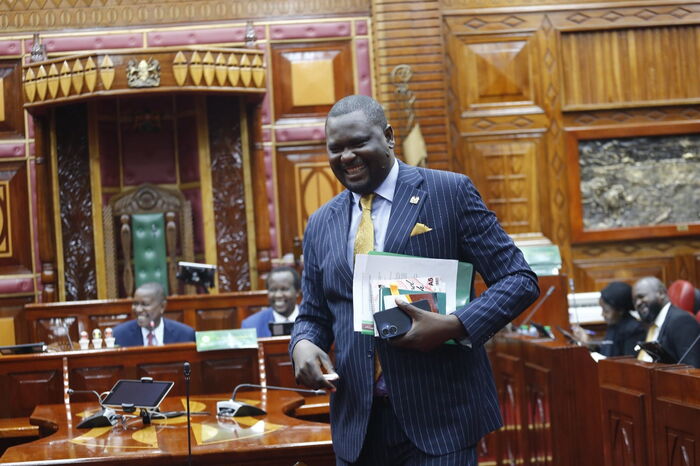In a dramatic turn of events, Mbeere North MP Geoffrey Ruku has decided to withdraw the highly contentious Assembly and Demonstration Bill, 2024, which has ignited a firestorm of criticism and sparked widespread protests across Kenya. This bill, introduced last year, sought to impose stringent regulations on public demonstrations, a move seen by many as a threat to the democratic rights enshrined in the Kenyan constitution.
Overview of the Controversial Bill
The Assembly and Demonstration Bill, 2024, was intended to regulate public gatherings in line with Article 37 of Kenya’s constitution, which guarantees the right to peacefully assemble, demonstrate, picket, and present petitions to public authorities. However, the bill proposed granting sweeping powers to law enforcement, including:
- Stringent Penalties: Violators of the proposed regulations faced fines of up to 100,000 Kenyan shillings and possible jail terms.
- Pre-Event Notification Requirements: The bill required detailed notifications to authorities before any public gathering, a provision seen by many as overly burdensome and restrictive.
Public Outcry and Protests
The introduction of the bill was met with immediate and fierce opposition. Critics argued that it represented an overreach of government power and a direct assault on fundamental freedoms.
- Civil Liberties Concerns: Opponents, including civil society groups and protest organizers, contended that the bill would effectively stifle dissent and limit the ability of citizens to voice their grievances.
- Broader Anti-Government Sentiment: The backlash against the bill coincided with a period of increasing public discontent, initially triggered by opposition to a controversial finance bill. The protests quickly evolved into broader anti-government demonstrations, with the bill becoming a focal point for widespread dissatisfaction.
One anonymous protest organizer summed up the concerns, stating, “The proposed legislation threatened to stifle dissent and impose undue restrictions on our democratic rights. It would have made it nearly impossible for ordinary citizens to express grievances without fear of reprisal.”
Ruku’s Decision to Withdraw the Bill
Facing mounting pressure and escalating protests, MP Geoffrey Ruku announced his decision to withdraw the bill through a social media statement. He acknowledged the public’s concerns and committed to formally requesting the Speaker of the National Assembly to withdraw the legislation.
“I have listened to the concerns raised by Kenyans, and in light of their feedback, I will be formally requesting the Speaker of the National Assembly to withdraw the Assembly and Demonstration Bill, 2024,” Ruku stated.
Victory for Civil Liberties
The decision to withdraw the bill marks a significant victory for civil liberties advocates and the demonstrators who vehemently opposed it. This outcome highlights the power of public dissent and the importance of protecting constitutional rights in a democratic society.
Key Takeaways:
- Public Engagement Matters: The withdrawal underscores the impact of public engagement and protest in shaping legislation and holding elected officials accountable.
- Balance Between Order and Rights: It also raises important questions about balancing the need for public order with the protection of fundamental freedoms. As societies grapple with these issues, it’s crucial to ensure that measures to maintain order do not infringe on rights to peaceful assembly and expression.
- Ongoing Vigilance: Finally, this episode serves as a reminder of the need for ongoing vigilance and advocacy to safeguard democratic rights and freedoms against potential encroachments.
As Kenya moves forward, the dialogue surrounding the regulation of public demonstrations will likely continue, but the withdrawal of this bill is a testament to the enduring strength of democratic principles and the voice of the people.
